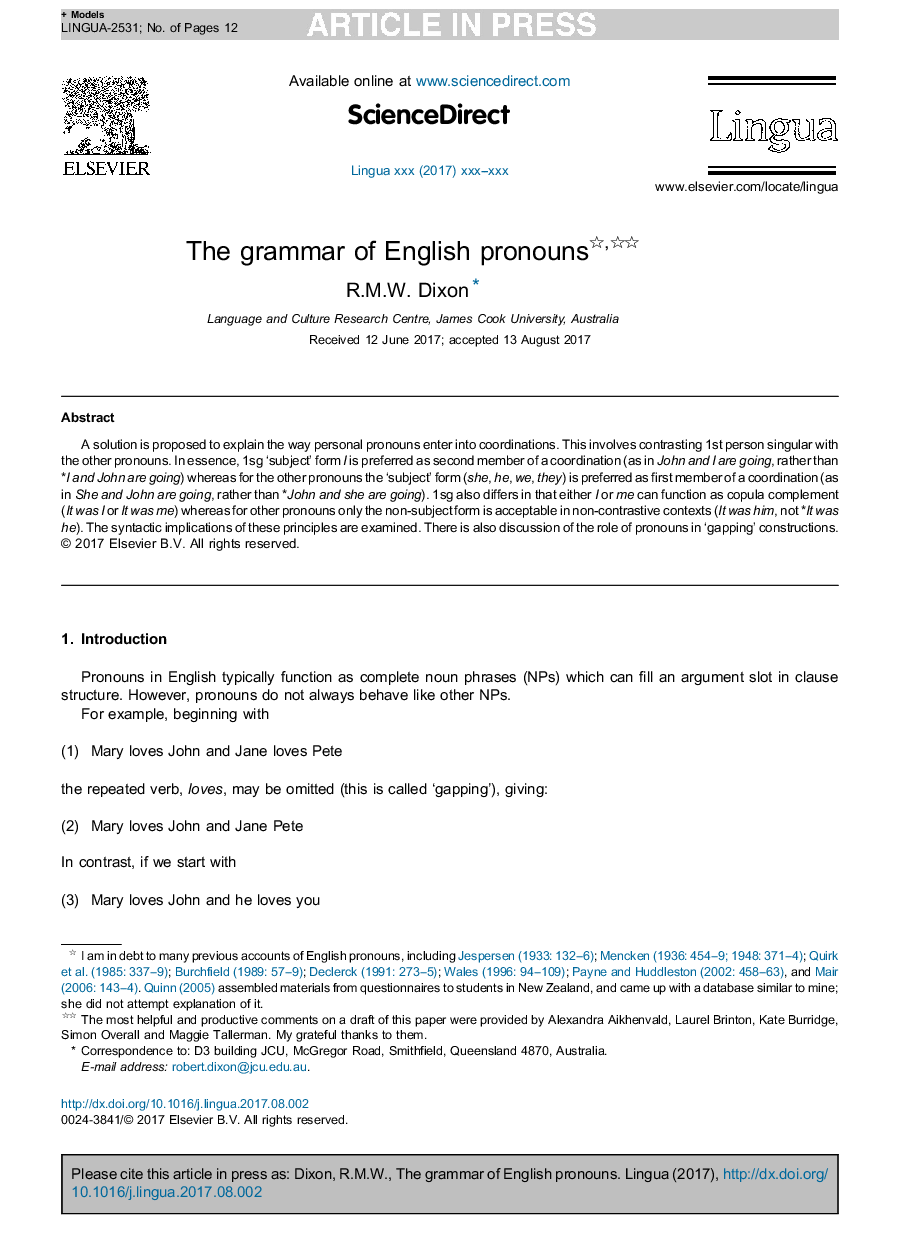| Article ID | Journal | Published Year | Pages | File Type |
|---|---|---|---|---|
| 7298457 | Lingua | 2017 | 12 Pages |
Abstract
A solution is proposed to explain the way personal pronouns enter into coordinations. This involves contrasting 1st person singular with the other pronouns. In essence, 1sg 'subject' form I is preferred as second member of a coordination (as in John and I are going, rather than *I and John are going) whereas for the other pronouns the 'subject' form (she, he, we, they) is preferred as first member of a coordination (as in She and John are going, rather than *John and she are going). 1sg also differs in that either I or me can function as copula complement (It was I or It was me) whereas for other pronouns only the non-subject form is acceptable in non-contrastive contexts (It was him, not *It was he). The syntactic implications of these principles are examined. There is also discussion of the role of pronouns in 'gapping' constructions.
Related Topics
Social Sciences and Humanities
Arts and Humanities
Language and Linguistics
Authors
R.M.W. Dixon,
